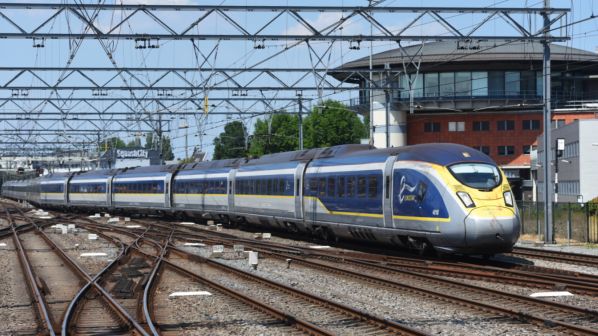“The impact of Covid-19 has led to an unprecedented fall in demand across the travel industry,” a spokesperson told IRJ. “We are taking steps to protect Eurostar for the long-term by reducing costs across the business, and are taking a considered approach to reducing our payroll costs, working closely with trade union partners.
“We are looking to introduce reduced hours and part-time working wherever possible throughout 2021 to protect as many jobs as possible and retain the knowledge, skills and experience of our people for the recovery, keeping any potential redundancy to a minimum.”
The Rail, Maritime and Transport (RMT) union said the cuts amounted to a 20% reduction in costs with an impact on jobs and services, and it had entered into talks with the objective of protecting staff employed by Eurostar.
RMT said the planned cuts would hit employment at the stations at Ebbsfleet and Ashford particularly hard.
Eurostar drastically cut back services in March to single daily trains from London to Brussels and Paris with use restricted to British and EU residents. The service to Amsterdam was put on hold until July 9, and the operator says it will not operate direct London - Lyon - Avignon - Marseille trains this summer or in 2021.
Eurostar carried 11.1 million passengers in 2019, up from 11 million from 2018, although revenue dropped slightly from £989m in 2018 to £987m in 2019 due to industrial action in France.
While the French and Belgian governments retained their share in Eurostar, the British government sold its stake in 2015.
“RMT is demanding government support to protect Eurostar jobs and services from the fall out of the Covid-19 pandemic and to recognise the long term importance to the British economy of these cross-channel transport services as we look to the future,” says RMT senior assistant general secretary, Mr Mick Lynch. “Short-term cuts would have dire long-term consequences.
“RMT will be seeking urgent talks with the government to stop this cull of jobs and services which would leave Britain ill-equipped to kick-start the economy with cross-channel tourism and trade.”
This was echoed by Transport Salaried Staffs Association (TSSA) general secretary, Mr Manuel Cortes, who also called on the British government to “intervene to save jobs.”
“We will work constructively with Eurostar and ministers to protect our members’ jobs and the future of this vital service,” Cortes says. “Eurostar provides a green strategic link between Britain and our European neighbours. It’s absolutely crucial that these services are retained, and once we come out the other side of this terrible pandemic, are expanded so we can meet the challenges of climate change. We can say for sure that Eurostar will continue providing the most environmentally-friendly passenger transport services between Britain and Europe. It’s therefore vital that all its staff are retained until its services return to normal.”

